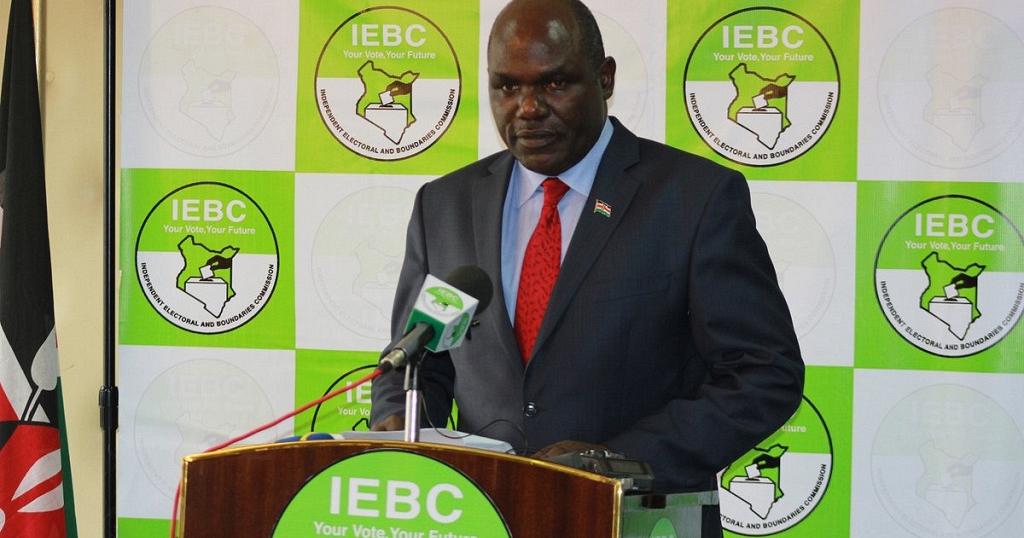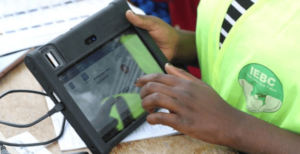By Kwabe Victor
Civil
societies of Kenya have moved to state their minimal conviction in the
Independent Electoral and Boundaries Commission in matters on the effective
conduction of this coming August polls.
The 9 civil
societies have reached out to IEBC’s Chairman Wafula Chebukati in a letter
signed by Kenya Human Rights Commission Executive Director, Davis Malombe,
dated 2 June, citing areas that could allegedly compromise the agency’s
obligation to offer credible polls.
In the letter,
the organizations allege massive “Inefficiencies, negligence and outright
corruption” in IEBC’s procurement and other electoral management operations,
which highlight the credibility of the voters’ register and security of IEBC’s
electronic systems among other issues.
The
organizations include Information, Angaza Movement, Africa Centre for Open
Governance (Africog), Muslim Human Rights (Muhuri), International Commission of
Jurists Kenya (ICJ-Kenya), Inuka Kenya, Midrift Network, Haki Yetu, and Crawn
Trust.
This comes
after Deputy President William Ruto had earlier accused the IEBC of failing to
account for up to a million registered voters in his stronghold having been
struck out.
Chebukati in
the defence had cited that no such breach would have happened unless it was an
internal or external breach of the electronic voters’ register.
Later last
week the Chairman of IEBC stated that investigations had been launched into the
matter and perpetrators are to be brought to book.
The memo
issued by Marjan asking the electoral staff to reverse the transfers not
accompanied by statutory forms reveals the potentiality of their having been a
breach either internally or externally.
The civil
society organizations have cited improper coordination within the independent
organ mandated with offering credible election and integrity among other
issues.
Referring to
this factor as one that has drained the faith citizens have in electoral
processes.
Allegations
against the IEBC
About an audit
report by KPMG Firm that exposed the vulnerability of the IEBC’s electronic
system.
The letter
stated, “The KPMG 2017 audit report raised concerns about unauthorized entry
and capacity to change, delete, amend or add changes to records, without any
trace whatsoever. Your recent public comments about the transfer of voters in
the register without authority are alarming as this is one of the issues
flagged in 2017 and reflects a failure to address past problems.”
A need for the
IEBC to take a stand in the ongoing integrity issues leaders are engaged in.
The civil
societies are now urging the institution to put its constitutional powers in
effect and coordinate meaningful actions towards enforcing Chapter Six and
other legal as well as constitutional provisions.
A deadline for
IEBC testing of its electoral technology is scheduled for the 9th of this
month, a deadline the chairman said they would attain as an institution.
Now the
civil societies are questioning effectivity this time round reminding the
institution of previous failures, “We remind you that in the test runs in 2013
and 2017 the technology did not pass the usability test as it collapsed across
the country.
The
KIEMS kits did not capture and record all voters’ data and a number did not
have power back up,” the letter addresses.
Reference to
these failures is dire since it’s one of the causes for the nullification of
the presidential election in 2017, as the court noted results transmitted from
areas not within the gazette polling stations.
About the Author
Rading Biko
Contributor
A highly experienced multi-platform Editor, digitally aware, skilled with words, and endowed with the ability to work effective under deadline pressure. Coming with a record of accomplishment of delivery high level of clarity, accuracy, and balance in copy editing functions. Since 2010 I have been working across the full spectrum of Kenyan Media as a Multimedia Journalist on both Electronic(Radio and Television),Print and online media.
















